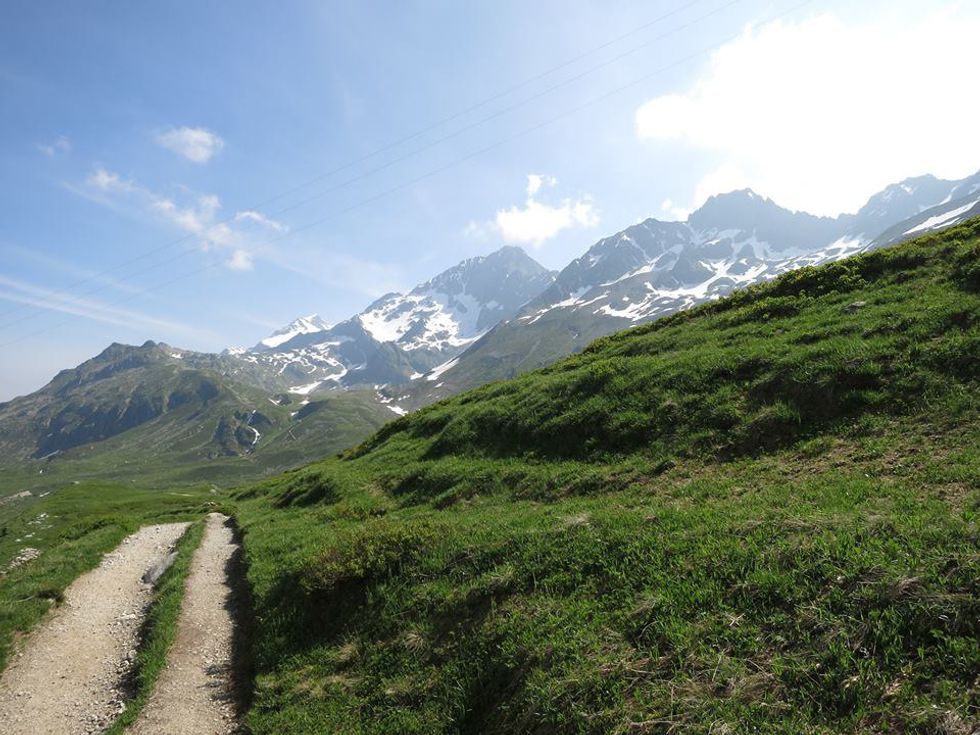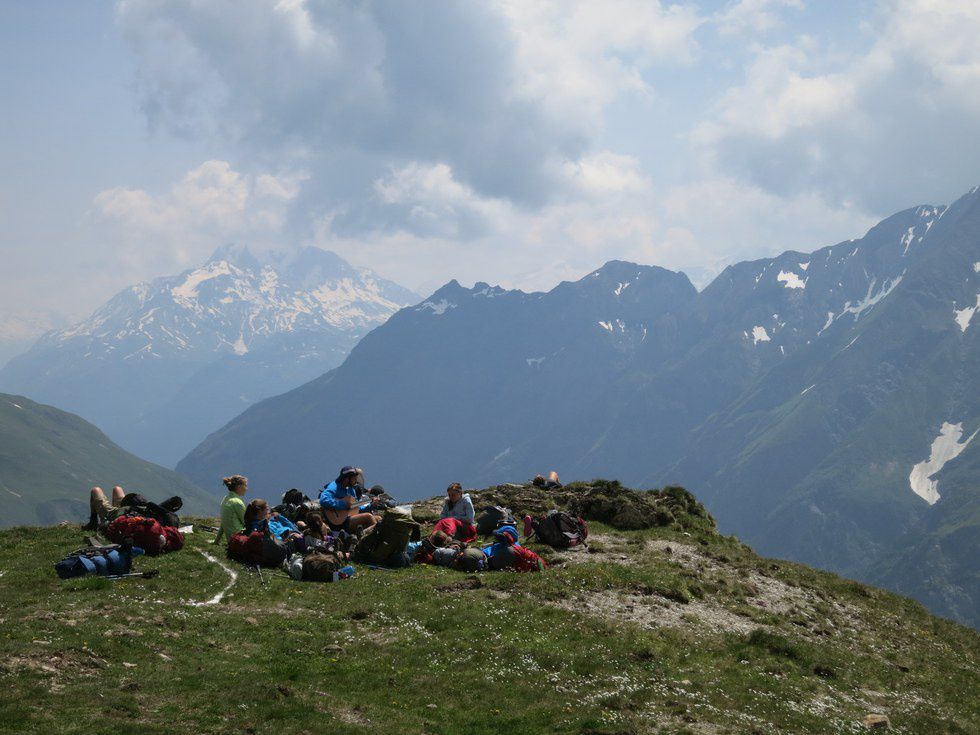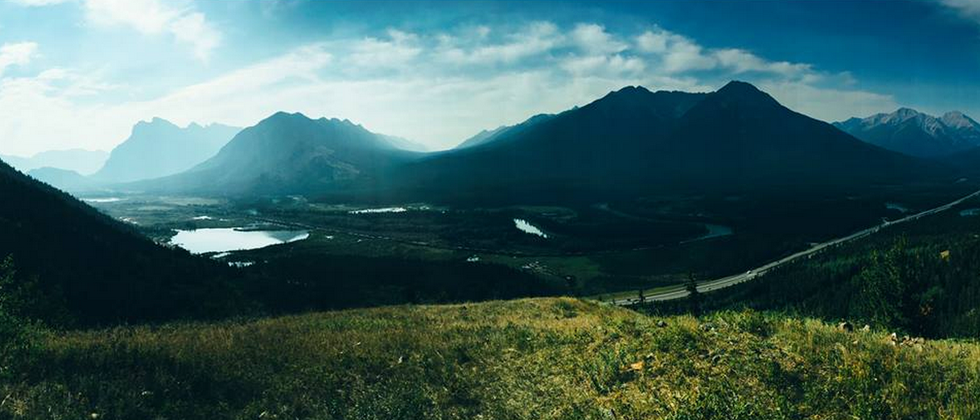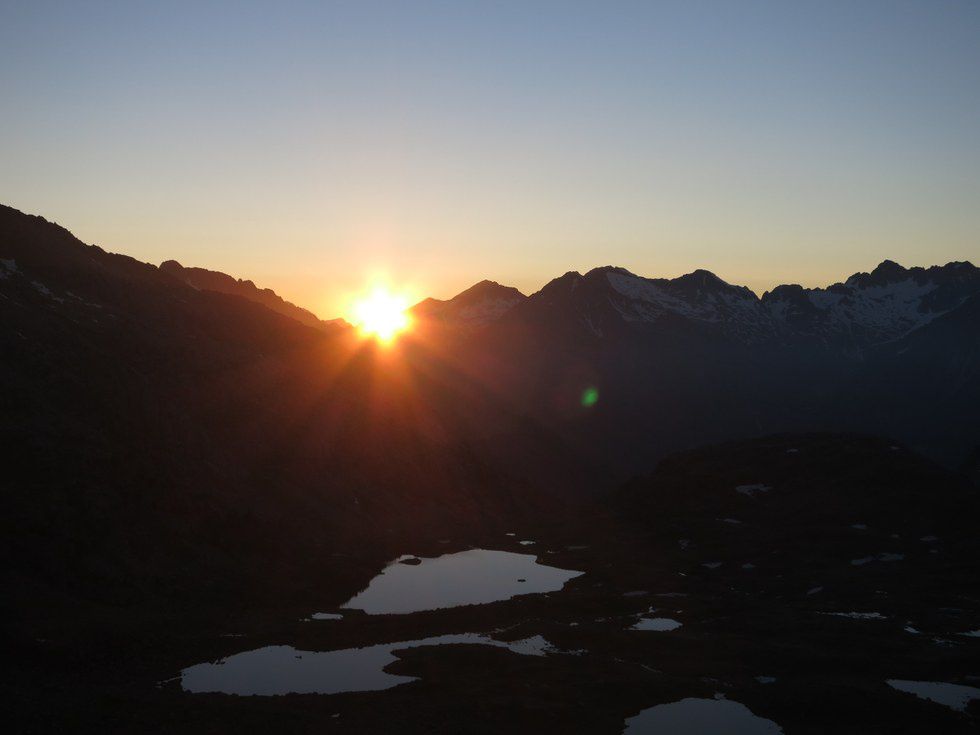There is no universally accepted way to define a mountain. Mountains are steeper than hills, and are formed through tectonic forces or volcanism. High elevations atop mountains produce much colder climates than at sea level. Thus, the ecosystems of mountains differ from others, allowing for different types plants and animals to survive. So what does all this mean? To many people, mountains are scary and intimidating and climbing one seems like a fantasy...someone else's fantasy most likely.
I think I'm one of those people who, despite being born in a city, has found something really special in mountains. So I'm here to offer some insight about traveling, hiking, and exploring the mountains.
1. Have the right mental attitude
Having the right mental attitude is one of the most important parts of hiking. If you plan to spend your whole day doing a hike, it is important to stay positive. Difficult hikes in the mountains can involve switchbacks (trail with alternate sharp ascents and descents), rock scrambles, and long distances traversing up mountains to reach a peak or col (saddle between two peaks). Personally, what I find most helpful is to keep moving, even if I am walking slowly. As long as I keep moving forward and don’t psych myself out, I know I’ll be okay.
When I hike with my family, we like to set ourselves mini-goals. For instance, if we encounter tough switchbacks then we’ll pick a tree to hike to and rest at that point. That way, you reduce the overall challenge to something that seems much more reasonable. Also, it’s easy to get discouraged by how quickly other people may seem to be moving up the mountain, but going at your own pace is extremely important because no one else is going to climb this mountain for you and you have to preserve your energy as you hike.
2. Prepare physically
Everyone prepares differently according to his or her personal hiking experience. However, it’s always important to know what to expect from a certain hike. If the trail is well-marked then you may never need a map, but it’s important to have with you. And don’t be afraid to ask questions! Ask park rangers about the hike you're taking, look it up online, and make sure to have knowledge before going about what to expect.The most important thing that I suggest having with you for a strenuous day’s hike is water. It’s important to stay hydrated before, during, and after your hikes. In some places, it can get very warm during the day, especially if you are hiking on an exposed mountain above the tree line. So make sure to keep drinking water! Food is energy, and it’s good to have some yummy snacks with you to keep you energized! Granola bars and trail mix are great snacks to have with you. Sandwiches, or even just meats and cheeses are also great foods for lunch (with a view).
Another thing that I find very valuable to bring is a roll of toilet paper. This may seem silly, but it is quite a multifaceted item to bring with you! It can be used as a tissue, napkin, towel, and can even be used for it’s original purpose! My number one rule of hiking: pee with a view! So why not be prepared?
3. Know the etiquette
I mentioned using toilet paper, but with great power comes great responsibility: Leave no trace (LNT) is one of the most important philosophies to abide by during your hikes. LNT essentially asks that you leave the trail and nature as you found it. For instance, stay on the marked trail, not only is it there for your safety--as there might be potentially dangerous plant life or animals living around the trail--but the marked trail is also there to preserve the rest of your surroundings. Additionally, LNT also follows the “pack in pack out” principle. Thus, any trash you may have along your hike should be put back in your bag and thrown away only in a proper disposal area, not left in the woods.
Respecting other hikers is expected of you as a hiker yourself. When passing a hiker going in the opposite direction, many will say hello to each other or wave. It is always nice to allow someone to pass you if you have room to step aside. And if you are passing someone going the same direction as you are, there’s no need to tailgate them and breathe down their necks, simply say excuse me or if they step aside on their own, they will always appreciate a “thank you”.
4. Have fun
Whether it's your first time in the mountains or hundredth, you should have fun and enjoy your experience. Exploring the mountains is a great way to learn new things about yourself and others and a great way to explore the world. So while you hike, be attentive to your surroundings, take pictures, sing songs, be silly, have deep talks, play games and just remember to embrace and enjoy your experience.
You know what's awesome about mountains? They're scary and intimidating, but if you gather the courage to start climbing them, you'll soon realize it's a task you can accomplish. And when you reach the top there is no greater feeling because you, a tiny human, have just conquered that mountain. This can be compared to life as a whole and each of life's little challenges; once you start the climb you realize you had the strength to overcome each challenge all along.
This article was inspired by a hike called Cory Pass in Banff National Park, Canada. Personal photos in this article are from Overland's European Explorer Summer Trip.
























